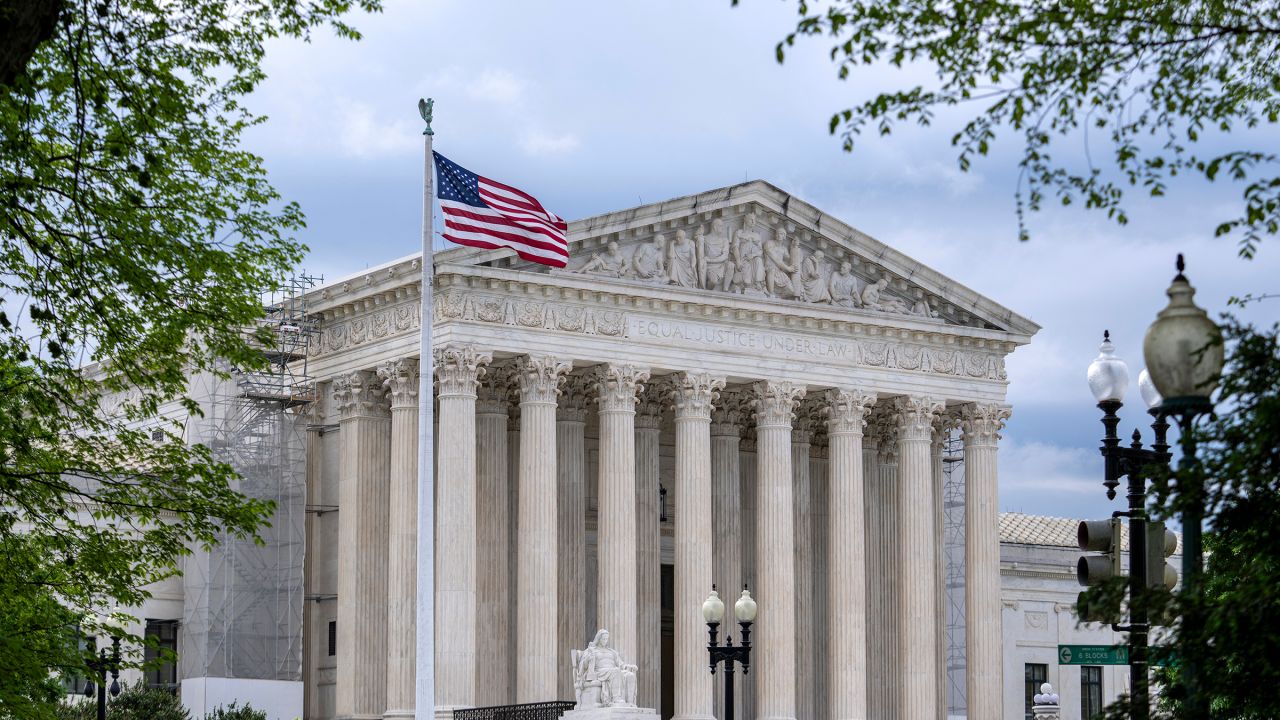Articles in this Cluster
27-06-2025
The Supreme Court limited lower courts’ ability to issue broad orders that block President Trump’s policies, a significant win for the administration. However, the Court also indicated that Trump’s plan to effectively end birthright citizenship is unlikely to take effect, signaling major legal obstacles ahead for that proposal.
Entities: Supreme Court, lower courts, President Trump, Trump administration, birthright citizenship • Tone: analytical • Sentiment: neutral • Intent: inform
27-06-2025
The Supreme Court, in a 6-3 decision, curtailed federal judges’ ability to issue nationwide injunctions that immediately block government policies, delivering a major procedural win to President Trump that could make it harder to halt his agenda while lawsuits proceed. The ruling, tied to litigation over Trump’s executive order curtailing birthright citizenship, does not decide the order’s legality, and lower courts may still move quickly to block it through other means. The conservative majority suggested class-action suits and state-led challenges remain viable avenues for broad relief, though they may require additional steps. Liberal justices issued sharp dissents warning the decision invites executive overreach and undermines the rule of law. The shift is likely to push challengers toward class actions to obtain nationwide relief, with immediate efforts already underway in Maryland against the birthright policy.
Entities: Supreme Court, President Donald Trump, nationwide injunctions, birthright citizenship, class-action lawsuits • Tone: analytical • Sentiment: neutral • Intent: inform
27-06-2025
The Supreme Court limited federal judges’ use of nationwide injunctions, giving President Trump greater leeway to implement his agenda while legal challenges proceed. Though the case centered on birthright citizenship (with final merits still pending), the ruling broadly curtails a key tool that had blocked policies across administrations. Trump celebrated the decision, citing plans to advance actions on sanctuary city funding, refugee resettlement, federal spending freezes, and restrictions on taxpayer-funded transgender care. While class actions and eventual Supreme Court reviews remain possible, the ruling immediately strengthens presidential power. Justice Amy Coney Barrett wrote the majority opinion, joined by the court’s conservatives, marking a significant institutional win for Trump, whose first-term appointments helped shape the court. The decision caps a consequential week for Trump, amid foreign policy moves and ongoing domestic legislative battles.
Entities: U.S. Supreme Court, Donald Trump, nationwide injunctions, birthright citizenship, sanctuary cities • Tone: analytical • Sentiment: neutral • Intent: inform
27-06-2025
In a series of 6-3 rulings largely along ideological lines, the Supreme Court delivered multiple wins aligned with the Trump administration’s positions. It limited nationwide injunctions in a birthright citizenship case (while pausing Trump’s order for 30 days), required public schools to offer parent opt-outs from classes conflicting with religious beliefs (including those with LGBTQ content), upheld a key Affordable Care Act provision ensuring free preventive services, approved Texas’s age-verification law for porn sites, and sustained the FCC’s Universal Service Fund for subsidized internet and phone access. The Court also deferred a Louisiana redistricting case to next term and allowed South Carolina to bar Planned Parenthood from Medicaid reimbursements for non-abortion services.
Entities: Supreme Court, Donald Trump, NPR, Affordable Care Act, FCC Universal Service Fund • Tone: analytical • Sentiment: neutral • Intent: inform
27-06-2025
The Supreme Court, in a 6–3 decision authored by Justice Amy Coney Barrett, curtailed lower courts’ use of nationwide injunctions, allowing President Trump’s executive order ending birthright citizenship to take effect in the 28 states that haven’t challenged it once the ruling becomes effective in 30 days. The Court did not address the order’s constitutionality, signaling that issue will likely return to the Court, and it left room for challengers to pursue class-action injunctions that could have broader geographic scope. The ruling reduces the power of single district judges to halt federal policies nationwide, likely prompting a surge of parallel suits and class actions, while expanding immediate executive latitude. Critics, including Democratic leaders and legal advocates, warned of risks to checks on presidential power, while supporters framed it as restoring judicial restraint. The decision could produce a temporary patchwork of citizenship rules across states until further court action.
Entities: Supreme Court, Justice Amy Coney Barrett, President Donald Trump, birthright citizenship, nationwide injunctions • Tone: analytical • Sentiment: neutral • Intent: inform
